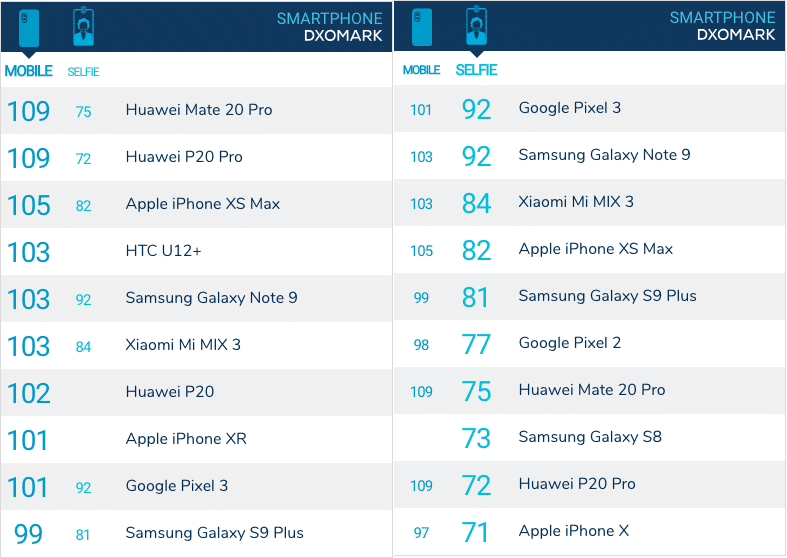
As promised, we are back with the second blog of the iPhone vs Android: The Ultimate Showdown series. If you haven’t gone through the first blog, don’t worry, we’ll share the link soon. We don’t want you to bounce off the page you’re on, so here’s a summary of the previous blog:
Table of Contents
We compared iOS and Android on the following 5 parameters:
Interestingly, the first showdown ended up in a draw. Let’s see how these contenders stand against each other in the second round of the face-off!
iPhones have the best cameras in the world, some may say, but DxOMark, the leading camera image quality reviewing firm says otherwise.

A picture may be worth a thousand words, but numbers speak louder than anything else. Remember, it’s not just the lens and the sensor that leads to great pictures. Image processor and other software also play an important role in giving us amazing shots. So whether we talk about the rear camera or the front one, Android takes the cake. Sorry, iPhone, but you need to do better.
iPhone: 3 Android: 4
We compared Siri and Google Assistant on various complexity levels. The first thing we noticed is how effective Siri’s American, British and Australian accents are. Google Assistant sounded robotic and forced when switched to Indian Accent.
Speaking of the efficiency of Siri and Google Assistant, both these assistants perform simple tasks such as setting alarms, reminders, showing weather forecasts and computing mathematical calculations with equal ease.
Making calls and sending text messages through WhatsApp is also equally easy with Siri and Google Assistant. But, Google Assistant works seamlessly only on Android devices, not when installed on iPhone.
As we progressed from simple tasks to more complex ones, Google assistant started proving its mettle. Google Assistant also proved to be more aware contextually. We asked GA and Siri the same question, “Who is Elon Musk?” and got the expected answer. When we moved on to “Where was he born?”, Google Assistant understood the context and came up with the right answer, again (Pretoria, South Africa, if you wonder). Siri didn’t get the context and thus, no answer.
iPhone: 3 Android: 5
As a mobile application development company, we know device security is among the major concerns of every smartphone user. Android, with more than 69 percent of the global share of smartphones users, becomes a soft target. It also happens to be open source, making it vulnerable to malware,
Apple’s closed mobile platform, on the other hand, makes it more secure. At the same time, with a global user share of just a bit above 28 percent, iPhones don’t have a reach as massive as Android phones. That also makes hackers and malware creators less interested in iPhones.
Moreover, Apple’s App Store follows more stringent policies, and thus, their app approval rate is way less than Google Play Stores. This is also one of the reasons why iPhone apps are more secure than Android Apps.
When it comes to device security, iPhones win.
iPhone: 4 Android: 5
Remember when we loved the rumble of a game controller in our hand? The same goes for our smartphones too, the way they respond to our interaction with them. And this is where haptic touch comes into the picture.
iPhones have a come a long way with their Taptic Engine, and using an iPhone is a whole new level of experience now. Android users may like to differ here, but once you use an iPhone for about half an hour, you’ll find the rattly Android buzzes quite annoying.
iPhone: 5 Android: 5
iPhone switched to OLED with iPhone 8, and even before that, iPhones have been a benchmark of phone display. But does that mean Android devices have inferior displays?
Absolutely not, for all the flagships Android phones boast of excellent display quality. The thing is, it’s the diverse budget range of Android phones that bring along specific display qualities. Surprisingly, Google Pixel 2 XL, despite all its glory, didn’t have a display as good as it should have been. iPhone, on the other hand, always has vibrant colors with its Retina display.
But then again, we can’t rule out the fact that Android phones do come with displays that do surpass iPhone’s display standards.
iPhone: 6 Android: 6
Till now, we have compared iPhones and Android phones on ten different parameters. App Store Options and Device Display are two categories where these two smartphones giants had a direct tie. However, with all their benefits and limitations, they still stand neck to neck in this showdown. The good thing is, the showdown will see the third round now, would it be the final one? Only time will tell, stay tuned…
